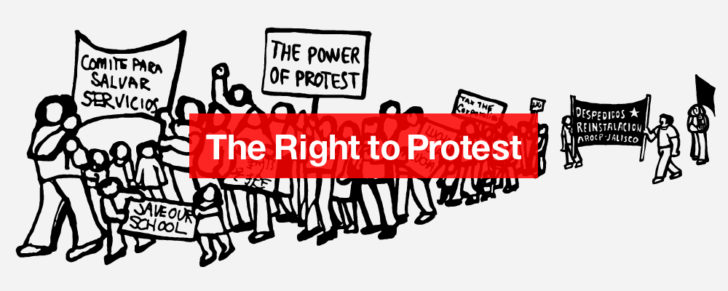The Right to Protest is a new platform for content produced by activists, experts and academics from different places in the world. This editorial partnership reflects the power of protest and the link between the right to social protest and the defense of human rights, at a moment in history when people are mobilizing more than ever.
The rise in large-scale protests worldwide, the Black Lives Matter movement in the United States, the 40-year-long fight for justice by the Mothers of Plaza de Mayo and the protests demanding answers to the question “Where is Santiago Maldonado?” are among the pieces available so far. Other highlights include reflections by a former UN Special Rapporteur on state management of assemblies, an Israeli photojournalist’s project on Palestinians injured by sponge-tipped bullets, and the need to regulate these and other crowd control weapons.
Social protest and human rights are inextricably intertwined: first, because people often take to the streets to protest violations of their rights. Also, the act of protest itself entails exercising rights, such as to freedom of expression and the rights of assembly, petition and dissent. Finally, state intervention in public mobilizations often ends up violating demonstrators’ rights – to liberty, health and, in the most extreme cases, to life.
CELS and the American Civil Liberties Union (ACLU) are two of the 13 national organizations belonging to the International Network of Civil Liberties Organizations (INCLO). Defending the right to protest is central to the work of all three organizations.
For more information on CELS’ work on social protest, see The Right to Protest: Acting Early and Taking it Global.

